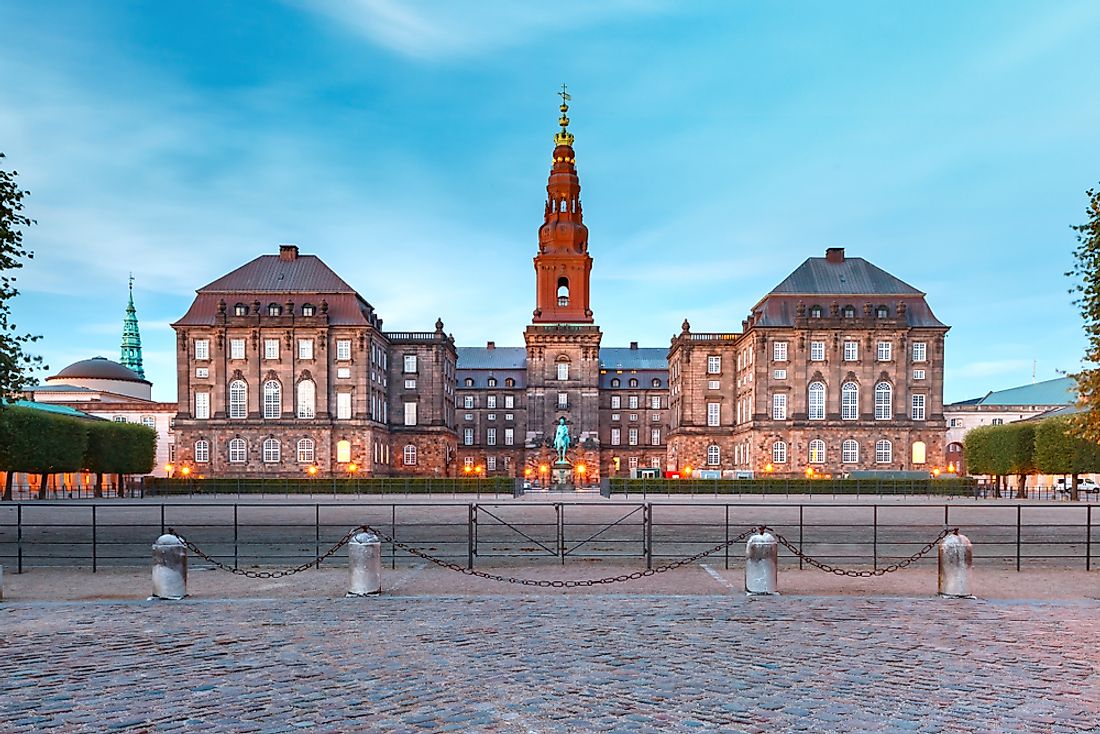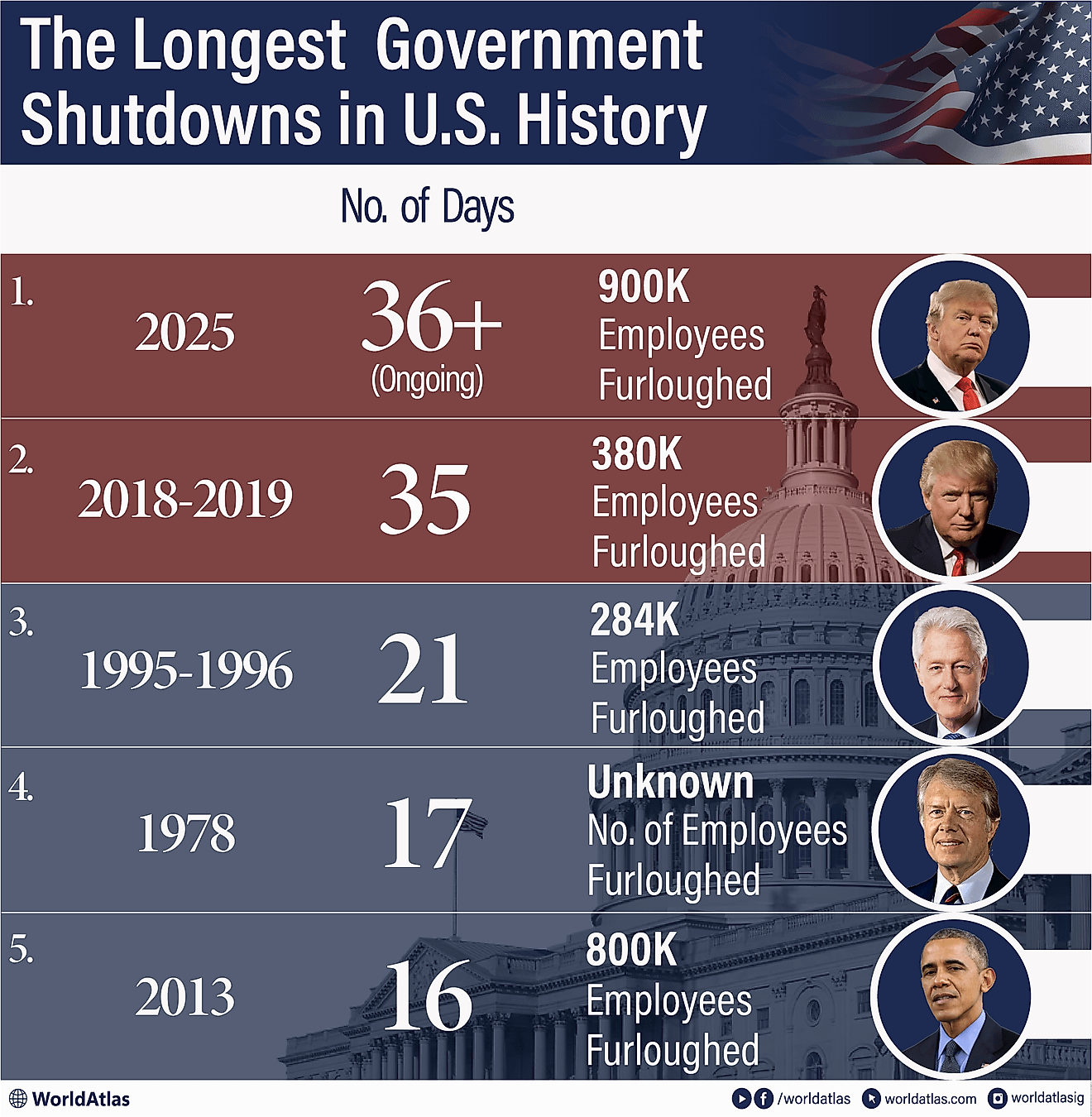What Type Of Government Does Denmark Have?

Denmark is one of the Scandinavian countries, which is located on the Northern side of the European continent. Among the Nordic countries, it is the smallest and southernmost. A sovereign state, Denmark consists of Denmark proper, and the Faroe Islands and Greenland – two autonomous countries located in the North Atlantic Ocean, and which are constituents of the Kingdom. The Kingdom of Denmark is a constitutional Monarchy, with the Queen being Head of State. With the signing of its Constitution in 1849, absolute Monarchy was terminated, and a constitutional Monarchy established. Headquarters of its government and national parliament are in its capital, Copenhagen.
The Monarchy In Denmark
The current Monarch is Queen Margrethe II, who has been the Kingdom’s head of state since 1972. The Danish Monarch is theoretically the center of power, with executive and legislative power originating from her according to the Constitution, but parliamentary sovereignty, which was established in 1901, has imposed what is, in fact, a separation of powers. Powers of the Monarch include vetoing a bill by denying it royal assent, appointing and dismissing the Prime Minister (theoretically, exercising her power of dismissal would result in a constitutional crisis in the Kingdom). The monarch also gives formal consent to “Royal Prerogative” decisions made by the Prime Minister such as the declaration of war and making peace, appointing and dismissing cabinet ministers. With most of the real power held by the Prime Minister and Parliament, due to the principle of separation of powers, the Monarch’s role in today’s Denmark is mostly ceremonial.
The Executive Branch Of The Danish Government
The Danish Prime Minister is head of government. He and his cabinet are appointed by the Monarch and may be dismissed by the same Monarch. The Executive’s decisions are monitored by the Folketing, which is the Kingdom’s parliamentary system. A vote of no confidence in the Prime Minister from the Folketing will prompt the resigning of the entire cabinet. In addition to leading the Cabinet, the Prime Minister is in charge of overseas territories, and constitutional affairs. Cabinet Ministers are heads of government departments/Ministries, and there are no assistant ministers. The civil service is charged with implementing the cabinet minister’s decisions, with the head of civil service in each department being the Permanent Secretary.
The Legislature Of Denmark
The Danish Parliament is referred to as the Folketing and is the center of power in Denmark’s political system. It has oversight of the executive, to ensure the government fulfills its mandate in accordance with the Constitution. It exercises this power of oversight by questioning ministers on policy matters and decisions, by holding debates on issues relating to government policy, and by passing motions. The Denmark has a unicameral parliamentary system. The Kingdom is a parliamentary democracy, and the voters elect the parliament, which then forms the government. In agreement with this principle of parliamentary democracy, the Prime Minister is appointed by the monarch from usually from the leader of the majority party or the leader of the majority coalition.
Judiciary Of Denmark
Due to the principle of separation of powers enshrined in the Danish Constitution, the Danish judiciary is independent of parliament and the executive. It is also highly regarded for its professionalism. The Monarch reserves the power to appoint judges. Denmark has a civil law system. The highest court in the country is the Supreme Court which is made up of the president of the court and other 18 judges. The judges are appointed by the monarch with the recommendation of the Justice Minister and advice from the Judicial Appointment Council (a six-member independent body of judges and lawyers). There are also subordinate courts in the country which include the Special Court of Indictment and Revision, High Courts, Maritime and Commercial Courts, and the County Courts.
The Folketing
Denmark’s parliament, the Folketing, has more power than parliaments in other European Union nations. Its multiparty system is characterized by co-operation between its political parties on most issues. The Kingdom has a state welfare model, which the Folketing gives a broader support. This has led to an emphasis on efficiency in the Kingdom’s public sector. The Danish people have expressed high levels of satisfaction with their institutions, and Denmark is among the least corrupt nations worldwide.











